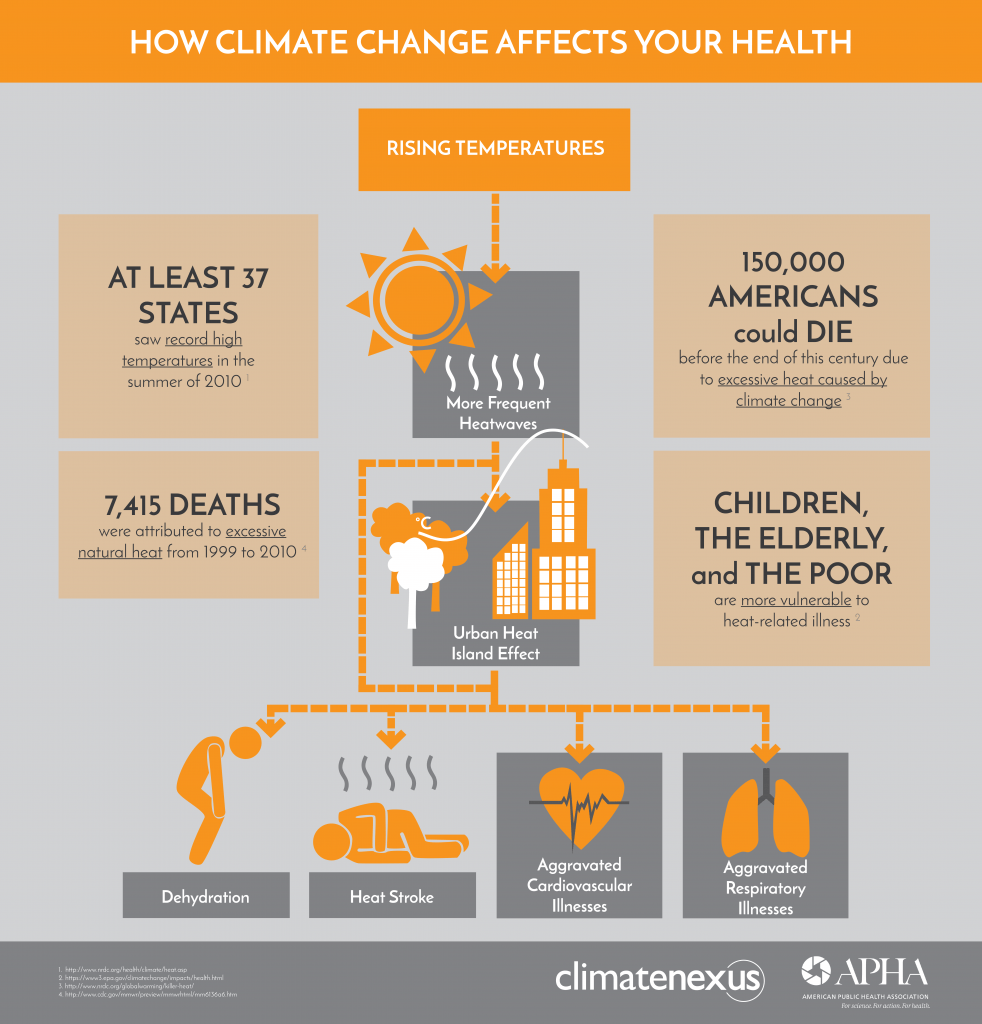Extreme heat causes more deaths than any other natural disaster
Exposure to extreme heat and heatwaves is already a significant public health problem and a leading cause of weather-related mortality in the U.S.
Center for Disease Control and Prevention defines extreme heat as “summertime temperatures that are substantially hotter and/ or more humid than average for that location at that time of year.” Climate change amplifies the intensity, duration and frequency of extreme heat events. As global warming intensifies, more heat records are broken every season.
According to Center for Climate Change and Health, extreme heat causes more deaths than any other type of natural disaster. Between 1999 and 2010, more than 7,100 people died from heat-related illness in the U.S. This is an average of 618 deaths per year.
Many urban areas worldwide have also witnessed a significant increase in the number of heat waves between 1973–2012. Urban heat island effect, which has a higher daytime maximum temperature and less nighttime cooling compared to surrounding rural areas, poses a greater risk to city residents.
For example, during the 2006 California heat wave, more than 650 deaths, additional 16,000 emergency room visits and a 10-fold increase in hospital admissions for heat-related illnesses have been recorded. Furthermore, continuously rising temperatures from climate change are projected to result in an increase of between 2,100 – 4,300 deaths in California in 2025 and an additional 6,700 – 11,300 deaths in 2050.

Extreme heat and heatwaves impact public health in multiple ways
Small children, the elderly and other groups including people with chronic illnesses, low-income populations and outdoor workers, are at higher risk for heat-related illnesses.
- Heat stroke: According to American Public Health Association, heat stroke is the most serious heat-related illness. It occurs when the body cannot control its temperature, causing the sweating mechanism to fail and the body cannot cool down. If proper emergency treatments are not given, heat stroke can cause death or permanent disability.
- Respiratory illness: A Johns Hopkins study found that the risk of hospitalizations for respiratory distress increased with higher temperatures. Breathing in hot air can exacerbate respiratory disorders (e.g. chronic obstructive pulmonary disease and bronchospasm) and promote airway inflammation.
- Cardiovascular illness: National Institute of Environmental Health Science writes that cardiovascular illnesses are already the leading cause of death in the U.S., but extreme heat is causing higher incidences of cardiovascular diseases (e.g. strokes and dysrhythmia).
- Dehydration, heat cramps, heat exhaustion are all also common health effects caused by extreme heat and rising temperatures, according to the U.S. Environmental Protection Agency.


